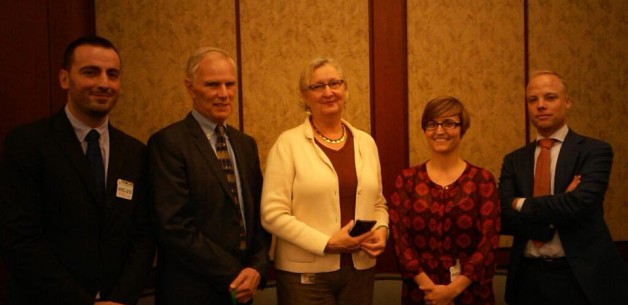On September 30th, the Tom Lantos Human Rights Commission held a hearing at the United States Congress on international financial institutions (IFIs) and human rights, chaired by Congressman Jim McGovern. Witnesses included BIC’s Nezir Sinani from Kosovo, Milton Sanchez from Peru, and Obang Metho from Ethiopia, who testified on the human rights impacts of World Bank projects on communities in their home countries. Mr. Philip Alston, UN Special Rapporteur on extreme poverty and human rights, gave further testimony from a policy perspective on the World Bank’s problematic attitude towards human rights, calling the Bank a “human rights-free zone.”
As one of the most influential international development agencies in the world, the World Bank’s approach to human rights has enormous global impacts and sets the standards for other development-focused institutions. Nevertheless, the World Bank has resisted committing to fundamental human rights standards, despite its fraught history with issues like forced displacement and environmental pollution. Wednesday’s hearing brought this history vividly to light. Obang Metho of the Solidary Movement for a New Ethiopia told the story of the Bank’s ‘villageization’ project and its devastating and violent impact on indigenous communities and their land rights. Milton Sanchez of the Interinstitutional Platform of Celendin illustrated how Bank-funded mining projects in Cajamarca have resulted and will continue to exacerbate contamination of water sources and erosion of the livelihoods of local communities.
Nezir Sinani, Safeguards and Climate Change Coordinator at BIC, told the story of the Bank’s involvement in coal power plants in Kosovo. The Bank’s well-known climate commitments aside, these projects sparked the forced eviction of several communities who have yet to be compensated. In his testimony, Mr. Sinani noted a recent study that found that World Bank projects have displaced approximately 3.4 million people over the last decade.

Milton Sanchez , Obang Metho , and Nezir Sinani testify at the Tom Lantos Human Rights Commission on September 30, 2015.
The UN Special Rapporteur, Professor Philip Alston, was emphatic in his criticisms of the World Bank’s aversion to human rights in his testimony to the Commission, elaborating on findings he established in a recent UN report on the subject. At Wednesday’s hearing he described the Bank’s aspirational, non-binding human rights policies and gave recommendations for how to advance them in order to match the commitments of national governments and other international institutions. He argued that the status quo cannot be sustained, as the Bank currently “treats human rights more like an infectious disease than universal values and obligations.”
A full transcript of the hearing is available from the US Congress Tom Lantos Human Rights Commission website.

